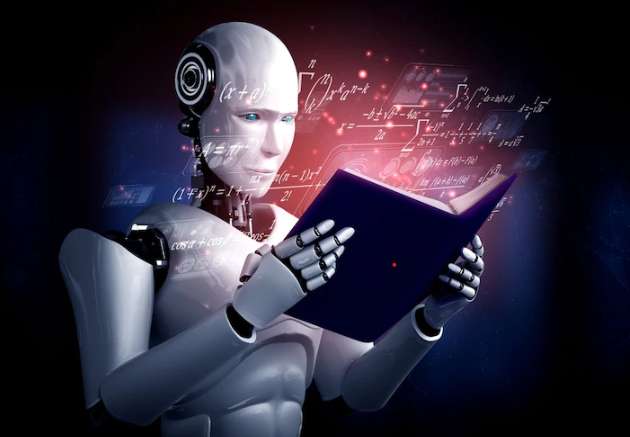With its easy-to-learn syntax, the Python programming language is becoming one of the most in-demand skill sets in the tech sector. Python is a highly intuitive language and its reliance on code blocks and self-explanatory syntax make it easily read and easily understood.
So if you’re unfamiliar with the Python language, but want to learn more, then you’re in the right place. Below, we’ll tell you everything you need to know about Python, including why it’s a good language for any programmer to learn, and how Python is being used today.
What Is Python?
Named after Monty Python, the British comedy troupe, Python is one of the most well-used and popular programming languages. Developed by Dutch programmer Guido van Rossum in 1991, this object-oriented programming language was designed to provide a high-level language for utility development within operating systems that were being developed.
How Is Python Used?
Here are some of the main ways that Python is used in programming:
Web, Software, and Game Development

With a number of frameworks for software development, Python is great for building games, web applications, and software platforms. Many commercial platforms that are popular with online media consumers, like Spotify and YouTube, are heavily reliant on Python for back-end development.
Several popular games have also been developed using Python. The Sims 4, Mount & Blade, and Eve Online are only a few of the games that have been designed using Python throughout their development. Many Python integrated API’s run 3D animation packages, making Python a key feature of many different game development processes from game structure to gaming animation.
Data Analytics

Python is one of the primary programming languages used in all data analytics. It’s an ideal language for exploratory data analysis and has a number of libraries specifically designed for data analytics and data visualization. These libraries make it one of the best options, and it’s practically a standard requirement for programmers working with data processing and analytics.
Data Science

The ever-growing field of data science also relies upon Python. The process of designing and implementing data science programs and algorithms is heavily driven by applications and programs that run Python code. With many data science libraries, Python has become one of the primary languages for those who are going into data science or pursuing a career in data engineering.
Cybersecurity

Python is widely used in cybersecurity. Many tasks within cybersecurity, from host discovery to malware analysis, can all be achieved with Python. Many cybersecurity specialists are able to take the extra step of learning Python to be able to collaborate with their teams due to Python having a much more gentle learning curve.
Machine Learning and AI

One of the reasons that there’s such a demand for Python skills is because of Python packages like PyTorch and TensorFlow, which are used in many machine learning and artificial intelligence projects. These two packages are just a couple of the many ways that Python is crucial in machine learning development. As the future scope of possibilities expands for machine learning, the demand for skills in this area will continue to increase.
Business Applications

Python is used in the development of many business applications, from console-based applications to GUI and software development applications. It’s through Python-based development packages that applications like Django and Flask have completely revolutionized the web application development process and have given way to apps like Pinterest, Instagram, and Spotify.
Blockchain

Python can be used to construct blockchain technology. By creating an immutable, unhackable, distributed, and persistent list of records in Python, developers can easily construct a blockchain. This growing area of the financial markets has taken media outlets and stock trading networks by storm. Python is already being used frequently in stock trading algorithms, gambling platforms, and market index software. So it’s no surprise that it has become a vital programming language in Web3 technologies like blockchain.
Automation

Many businesses have developed automation software for their processes using Python. Some examples of task automation that a business might develop for its operations would be automating emails, web scraping, or Google search automation. As this area of Python programming becomes more sophisticated, a growing number of businesses are learning that by automating tedious tasks like these, they are able to focus on higher-yield processes.
Features of Python Programming Language

These are the features that make Python such a popular language:
Easy Maintenance and Code Reusability
One of the key features of the Python language is the easy maintenance and reusability of its code. Updating programs is easily done without much concern as so much of the code base is clean and structured. Through its functions, Python makes good use of code and allows for code reusability throughout programs.
Support for Various Programming Paradigms
Python is a language that has a lot of support systems in place for many different applications. There’s not really any area of the industry where Python can’t be implemented. While some concerns like memory usage may make it less than an ideal option for some tasks like mobile app development, the platforms that are based on the Python programming language are often the ones used to develop web applications and mobile apps. It’s not always the ideal option to use Python, but the tool that you’ll end up using instead has a high likelihood of having been developed in Python.
Seamless Compatibility With All Major Platforms and Systems
Python boasts seamless compatibility with systems that utilize Python code. It has the ability to be run on any operating system and does so unaltered. What this means is that it will run on a Windows computer with the same efficiency and speed that it will on a Mac. Python is also used as a standard component in many operating systems.
When Python is installed in an operating system, it communicates with the device via byte code, which is interpreted through the Python virtual machine. As it is easily integrated into an operating system, Python is integrated into many different development environments. Programs are then easily saved into source code files where it can be accessed again. Python is also very useful for deploying applications with the Google project hosting platform Google Cloud.
Exhaustive Standard Library
A standard library for Python contains packages that cover all of its many use cases. It’s a core feature of Python that has made it a favorite for professionals from many backgrounds. From its scientific calculation and computational packages to its graphic interface and data visualization features, the many libraries in Python are part of what makes it so versatile.
Open-Source Tools and Framework
One of the reasons that Python is so popular is that it is an open-source language. Many of the tools and frameworks within Python are also open source, making them highly accessible to the average developer with many documentation and support sources from many different sites and individuals. This support extends to all areas and major versions of Python. Both current and previous versions have extensive documentation and extensive support systems in place for developers.
Quick Automation
The process of automation using Python is made easy by the fact that Python contains several modules that are specifically optimized for automation. These include PyAutoGUI, among others.
Benefits of Python

These core features make Python such a popular option for programmers:
Readability
Python source code consists of code blocks and expressions that are easily understood. Without much training, a beginner-level programmer can look at a Python program and be able to discern the control flow of the program. It’s the readability and easy communication of Python program functions that makes it easily communicated across development teams.
Unique Cross-Platform Capabilities
Python has unique cross-platform capabilities. For example, uInterpreter is able to interpret Python to byte code and the reverse on all major operating systems and platforms. Python’s reference implementation, CPython, can be downloaded directly onto any system. This means that the same programs can be run using Apple developer tools can be run on a Windows computer with no difficulty.
Easy To Learn
Learning Python is not considered to be very difficult when compared to many other languages. The fundamentals can be easily learned in a course or certificate program.
A Robust Built-In Library
The many libraries that are available in Python negate the need for inputting packages that many other programs would require.
Open-Source Support
The open-source community surrounding Python is responsible for the large amount of content and support systems that exist for Python developers. With each stable release of Python, the dense network of Python developers churn out content and guides to help Python users navigate the new version
Drawbacks of Python
For all of its pros, Python has a few cons too, including:
Inefficient Memory Use
While the object-oriented programming paradigm and dynamic language features of Python make it highly functional and customizable, it is still very taxing on memory. This is usually combatted by using more efficient methods of writing a program with tools like list comprehensions and generator expressions.
Simplicity
The simplicity of the language has caused some to find it more difficult to build in. Despite Python’s intuitive control flow and use of indentation for statement grouping, many developers have found each step to require more steps to accomplish tasks.
Resources for Learning Python as a Beginner
The best part about being a programmer today is how many resources there are available. Courses, certificates, bootcamps, and online forums are all available to help you learn and develop your understanding of the Python language. Here are some of the most popular options:
Online Courses

Online Python courses are one of the most popular options for programming education outside of a formal degree. This popularity is because they are usually shorter than a university course, cost much less, and provide students with information on specific topics. Many of these courses and certificate programs are available with a purchase or with a subscription to the course website.
Bootcamps
There are many great bootcamps that can help you learn Python, in addition to other programming languages as well. A python bootcamp can help enhance the learning experience with 1:1 mentorship, career coaching, and many other services that the standard course doesn’t offer. You will be able to learn proper programming techniques, build a portfolio, and begin your job search process, all while completing a certificate program that will provide you with a certification upon your successful completion.
Get To Know Other Data Science Students
Brandon Beidel
Senior Data Scientist at Red Ventures
Bryan Dickinson
Senior Marketing Analyst at REI
Sam Fisher
Data Science Engineer at Stratyfy
MOOCs
In recent years, a large number of MOOCs—massive online open courses—have been released by universities, often in collaboration with coding websites. These MOOCs operate in a very similar way to a traditional online master’s degree, which seems to be losing favor with developers. With the popularity of online micro-degrees and courses, many universities and colleges have come to see the benefit of offering an option that allows students to specialize in a specific topic using their curriculum.
Coding Websites
Coding websites are one of the most well-used resources available to developers. One of the most valuable websites that most programmers visit at some point is Stack Overflow, a coding website with forums and answers to many questions that a programmer might have.
YouTube

YouTube has a number of great courses that teach Python completely free. Some of the best Python courses available on YouTube are offered by freeCodeCamp, TechWorld with Nana, and many more. Videos can add a layer of understanding that can be lost by simply reading solutions and instructions on a forum or blog. If you are someone who finds a video explanation to be a better resource, then you will be able to find more than enough videos teaching Python for free on YouTube.
The Python Tutorial

This website is the resource for all things Python. It’s the official website for Python information and is updated on a regular basis to reflect the changes that have taken place in each major version of Python. While studying Python through this tutorial would be a self-paced effort, you could easily learn everything that you need to know about Python on this one website alone.
Online Communities and Forums
There are many online communities and forums that are available for developers who are learning and collaborating within the Python language. Some forums are considered official python forums, while others are not directly from the creators of Python and are instead unofficial communities that exist to provide support for both current and previous versions of Python. Despite the rights to the Python language being wholly owned by the Python Software Foundation, the support is largely open-sourced and democratized.
FAQs About Python
Here are some of the most commonly asked questions about Python:
What Are the Basic Concepts of Python?
Python has several basic concepts that anyone learning the language will want to know upfront. It is a strongly typed dynamic language and has specific data types. Python also contains strings, and it uses flow control statements, like ‘while,’ ‘for,’ and ‘if.’
Unlike many conventional languages, Python does not use curly brackets to indicate code blocks. Instead, code blocks in Python are indicated by indentation for statement grouping. It is an interpreted language that is interactive and object-oriented. It contains modules and packages that allow for different types of functionality within its library and is a high-level language that has a syntax that carries over neatly to many other programming languages and is highly intuitive.
Is Python a Good Programming Language To Learn?
Yes. Learning Python is one of the best things that new developers can do for their careers. It is one of the most in-demand languages in existence, with uses that span most of the tech world. Making your Python education a priority early in your career can open a number of doors and help you navigate your career with greater flexibility.
What Careers Can You Pursue if You Can Code in Python?
Python is used as one of the primary programming languages in a number of key programming fields. Data-centric fields like data analytics and data science are both roles where Python is used heavily. Software engineering and web development also have a significant amount of Python usage. If you’re pursuing a career in cybersecurity, which is a growing field, you’ll find that knowing how to program in Python can become a great asset to you.
Is Python Easy To Learn?
Python is widely considered one of the most intuitive programming languages. Its syntax is straightforward and its data types are very commonly understood terminology. Overall, it’s a widely understood and widely used programming language, largely due to the low learning curve that it offers.
Can I Teach Myself Python?
You can, but learning from a proven source can help you to avoid bad habits and can show you the most efficient ways to design and develop programs. With it being such a popular language, there are many official certificate programs that you can take in order to learn Python. In the long run, all developers are responsible for self-educating as they improve their skills over time. As a programming language that is easily learned, it is not uncommon for programmers to self-teach many aspects of the language.
Companies are no longer just collecting data. They’re seeking to use it to outpace competitors, especially with the rise of AI and advanced analytics techniques. Between organizations and these techniques are the data scientists – the experts who crunch numbers and translate them into actionable strategies. The future, it seems, belongs to those who can decipher the story hidden within the data, making the role of data scientists more important than ever.
In this article, we’ll look at 13 careers in data science, analyzing the roles and responsibilities and how to land that specific job in the best way. Whether you’re more drawn out to the creative side or interested in the strategy planning part of data architecture, there’s a niche for you.
Is Data Science A Good Career?
Yes. Besides being a field that comes with competitive salaries, the demand for data scientists continues to increase as they have an enormous impact on their organizations. It’s an interdisciplinary field that keeps the work varied and interesting.
10 Data Science Careers To Consider
Whether you want to change careers or land your first job in the field, here are 13 of the most lucrative data science careers to consider.
Data Scientist
Data scientists represent the foundation of the data science department. At the core of their role is the ability to analyze and interpret complex digital data, such as usage statistics, sales figures, logistics, or market research – all depending on the field they operate in.
They combine their computer science, statistics, and mathematics expertise to process and model data, then interpret the outcomes to create actionable plans for companies.
General Requirements
A data scientist’s career starts with a solid mathematical foundation, whether it’s interpreting the results of an A/B test or optimizing a marketing campaign. Data scientists should have programming expertise (primarily in Python and R) and strong data manipulation skills.
Although a university degree is not always required beyond their on-the-job experience, data scientists need a bunch of data science courses and certifications that demonstrate their expertise and willingness to learn.
Average Salary
The average salary of a data scientist in the US is $156,363 per year.
Data Analyst
A data analyst explores the nitty-gritty of data to uncover patterns, trends, and insights that are not always immediately apparent. They collect, process, and perform statistical analysis on large datasets and translate numbers and data to inform business decisions.
A typical day in their life can involve using tools like Excel or SQL and more advanced reporting tools like Power BI or Tableau to create dashboards and reports or visualize data for stakeholders. With that in mind, they have a unique skill set that allows them to act as a bridge between an organization’s technical and business sides.
General Requirements
To become a data analyst, you should have basic programming skills and proficiency in several data analysis tools. A lot of data analysts turn to specialized courses or data science bootcamps to acquire these skills.
For example, Coursera offers courses like Google’s Data Analytics Professional Certificate or IBM’s Data Analyst Professional Certificate, which are well-regarded in the industry. A bachelor’s degree in fields like computer science, statistics, or economics is standard, but many data analysts also come from diverse backgrounds like business, finance, or even social sciences.
Average Salary
The average base salary of a data analyst is $76,892 per year.
Business Analyst
Business analysts often have an essential role in an organization, driving change and improvement. That’s because their main role is to understand business challenges and needs and translate them into solutions through data analysis, process improvement, or resource allocation.
A typical day as a business analyst involves conducting market analysis, assessing business processes, or developing strategies to address areas of improvement. They use a variety of tools and methodologies, like SWOT analysis, to evaluate business models and their integration with technology.
General Requirements
Business analysts often have related degrees, such as BAs in Business Administration, Computer Science, or IT. Some roles might require or favor a master’s degree, especially in more complex industries or corporate environments.
Employers also value a business analyst’s knowledge of project management principles like Agile or Scrum and the ability to think critically and make well-informed decisions.
Average Salary
A business analyst can earn an average of $84,435 per year.
Database Administrator
The role of a database administrator is multifaceted. Their responsibilities include managing an organization’s database servers and application tools.
A DBA manages, backs up, and secures the data, making sure the database is available to all the necessary users and is performing correctly. They are also responsible for setting up user accounts and regulating access to the database. DBAs need to stay updated with the latest trends in database management and seek ways to improve database performance and capacity. As such, they collaborate closely with IT and database programmers.
General Requirements
Becoming a database administrator typically requires a solid educational foundation, such as a BA degree in data science-related fields. Nonetheless, it’s not all about the degree because real-world skills matter a lot. Aspiring database administrators should learn database languages, with SQL being the key player. They should also get their hands dirty with popular database systems like Oracle and Microsoft SQL Server.
Average Salary
Database administrators earn an average salary of $77,391 annually.
Data Engineer
Successful data engineers construct and maintain the infrastructure that allows the data to flow seamlessly. Besides understanding data ecosystems on the day-to-day, they build and oversee the pipelines that gather data from various sources so as to make data more accessible for those who need to analyze it (e.g., data analysts).
General Requirements
Data engineering is a role that demands not just technical expertise in tools like SQL, Python, and Hadoop but also a creative problem-solving approach to tackle the complex challenges of managing massive amounts of data efficiently.
Usually, employers look for credentials like university degrees or advanced data science courses and bootcamps.
Average Salary
Data engineers earn a whooping average salary of $125,180 per year.
Database Architect
A database architect’s main responsibility involves designing the entire blueprint of a data management system, much like an architect who sketches the plan for a building. They lay down the groundwork for an efficient and scalable data infrastructure.
Their day-to-day work is a fascinating mix of big-picture thinking and intricate detail management. They decide how to store, consume, integrate, and manage data by different business systems.
General Requirements
If you’re aiming to excel as a database architect but don’t necessarily want to pursue a degree, you could start honing your technical skills. Become proficient in database systems like MySQL or Oracle, and learn data modeling tools like ERwin. Don’t forget programming languages – SQL, Python, or Java.
If you want to take it one step further, pursue a credential like the Certified Data Management Professional (CDMP) or the Data Science Bootcamp by Springboard.
Average Salary
Data architecture is a very lucrative career. A database architect can earn an average of $165,383 per year.
Machine Learning Engineer
A machine learning engineer experiments with various machine learning models and algorithms, fine-tuning them for specific tasks like image recognition, natural language processing, or predictive analytics. Machine learning engineers also collaborate closely with data scientists and analysts to understand the requirements and limitations of data and translate these insights into solutions.
General Requirements
As a rule of thumb, machine learning engineers must be proficient in programming languages like Python or Java, and be familiar with machine learning frameworks like TensorFlow or PyTorch. To successfully pursue this career, you can either choose to undergo a degree or enroll in courses and follow a self-study approach.
Average Salary
Depending heavily on the company’s size, machine learning engineers can earn between $125K and $187K per year, one of the highest-paying AI careers.
Quantitative Analyst
Qualitative analysts are essential for financial institutions, where they apply mathematical and statistical methods to analyze financial markets and assess risks. They are the brains behind complex models that predict market trends, evaluate investment strategies, and assist in making informed financial decisions.
They often deal with derivatives pricing, algorithmic trading, and risk management strategies, requiring a deep understanding of both finance and mathematics.
General Requirements
This data science role demands strong analytical skills, proficiency in mathematics and statistics, and a good grasp of financial theory. It always helps if you come from a finance-related background.
Average Salary
A quantitative analyst earns an average of $173,307 per year.
Data Mining Specialist
A data mining specialist uses their statistics and machine learning expertise to reveal patterns and insights that can solve problems. They swift through huge amounts of data, applying algorithms and data mining techniques to identify correlations and anomalies. In addition to these, data mining specialists are also essential for organizations to predict future trends and behaviors.
General Requirements
If you want to land a career in data mining, you should possess a degree or have a solid background in computer science, statistics, or a related field.
Average Salary
Data mining specialists earn $109,023 per year.
Data Visualisation Engineer
Data visualisation engineers specialize in transforming data into visually appealing graphical representations, much like a data storyteller. A big part of their day involves working with data analysts and business teams to understand the data’s context.
General Requirements
Data visualization engineers need a strong foundation in data analysis and be proficient in programming languages often used in data visualization, such as JavaScript, Python, or R. A valuable addition to their already-existing experience is a bit of expertise in design principles to allow them to create visualizations.
Average Salary
The average annual pay of a data visualization engineer is $103,031.
Resources To Find Data Science Jobs
The key to finding a good data science job is knowing where to look without procrastinating. To make sure you leverage the right platforms, read on.
Job Boards
When hunting for data science jobs, both niche job boards and general ones can be treasure troves of opportunity.
Niche boards are created specifically for data science and related fields, offering listings that cut through the noise of broader job markets. Meanwhile, general job boards can have hidden gems and opportunities.
Online Communities
Spend time on platforms like Slack, Discord, GitHub, or IndieHackers, as they are a space to share knowledge, collaborate on projects, and find job openings posted by community members.
Network And LinkedIn
Don’t forget about socials like LinkedIn or Twitter. The LinkedIn Jobs section, in particular, is a useful resource, offering a wide range of opportunities and the ability to directly reach out to hiring managers or apply for positions. Just make sure not to apply through the “Easy Apply” options, as you’ll be competing with thousands of applicants who bring nothing unique to the table.
FAQs about Data Science Careers
We answer your most frequently asked questions.
Do I Need A Degree For Data Science?
A degree is not a set-in-stone requirement to become a data scientist. It’s true many data scientists hold a BA’s or MA’s degree, but these just provide foundational knowledge. It’s up to you to pursue further education through courses or bootcamps or work on projects that enhance your expertise. What matters most is your ability to demonstrate proficiency in data science concepts and tools.
Does Data Science Need Coding?
Yes. Coding is essential for data manipulation and analysis, especially knowledge of programming languages like Python and R.
Is Data Science A Lot Of Math?
It depends on the career you want to pursue. Data science involves quite a lot of math, particularly in areas like statistics, probability, and linear algebra.
What Skills Do You Need To Land an Entry-Level Data Science Position?
To land an entry-level job in data science, you should be proficient in several areas. As mentioned above, knowledge of programming languages is essential, and you should also have a good understanding of statistical analysis and machine learning. Soft skills are equally valuable, so make sure you’re acing problem-solving, critical thinking, and effective communication.
Since you’re here…Are you interested in this career track? Investigate with our free guide to what a data professional actually does. When you’re ready to build a CV that will make hiring managers melt, join our Data Science Bootcamp which will help you land a job or your tuition back!






